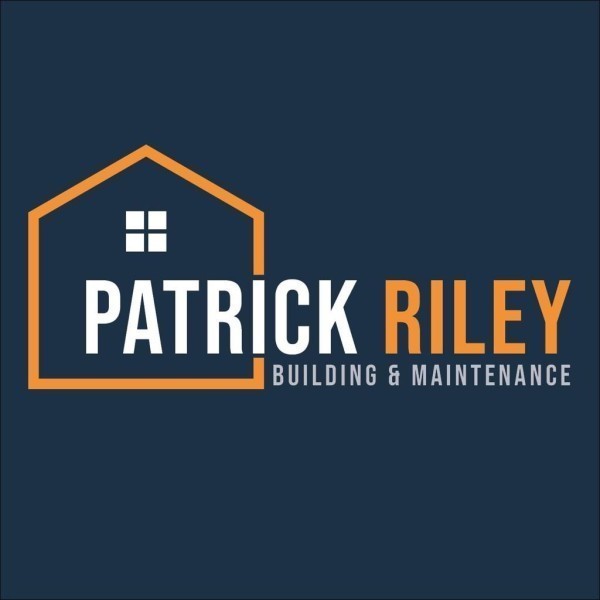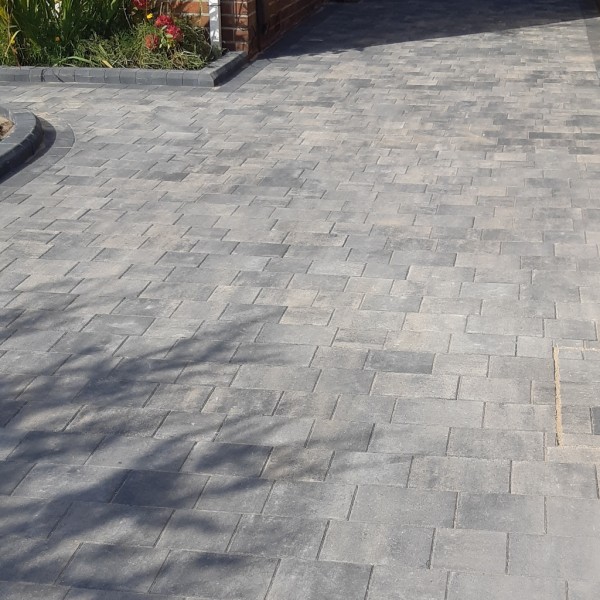Garden Fencing in Leyland
Search Garden Fencing in places nearby
- Garden Fencing in Accrington
- Garden Fencing in Adlington
- Garden Fencing in Bacup
- Garden Fencing in Bamber Bridge
- Garden Fencing in Barnoldswick
- Garden Fencing in Barrowford
- Garden Fencing in Blackburn
- Garden Fencing in Blackpool
- Garden Fencing in Brierfield
- Garden Fencing in Burnley
- Garden Fencing in Carnforth
- Garden Fencing in Chorley
- Garden Fencing in Church
- Garden Fencing in Clayton-Le-Moors
- Garden Fencing in Cleveleys
- Garden Fencing in Clitheroe
- Garden Fencing in Colne
- Garden Fencing in Darwen
- Garden Fencing in Earby
- Garden Fencing in Fleetwood
- Garden Fencing in Freckleton
- Garden Fencing in Fulwood
- Garden Fencing in Great Harwood
- Garden Fencing in Haslingden
- Garden Fencing in Heysham
- Garden Fencing in Kirkham
- Garden Fencing in Lancaster
- Garden Fencing in Longridge
- Garden Fencing in Lytham St Anne's
- Garden Fencing in Morecambe
- Garden Fencing in Nelson
- Garden Fencing in Ormskirk
- Garden Fencing in Oswaldtwistle
- Garden Fencing in Padiham
- Garden Fencing in Poulton-Le-Fylde
- Garden Fencing in Preston
- Garden Fencing in Rawtenstall
- Garden Fencing in Rishton
- Garden Fencing in Skelmersdale
- Garden Fencing in Thornton
- Garden Fencing in Trawden
- Garden Fencing in Whitworth
Introduction to Garden Fencing in Leyland
Garden fencing in Leyland is more than just a boundary marker; it’s an essential element that enhances the beauty, privacy, and security of your outdoor space. Whether you're looking to keep pets in, intruders out, or simply add a decorative touch to your garden, the right fencing can make all the difference. In this article, we’ll explore the various aspects of garden fencing in Leyland, from selecting the right materials to understanding local regulations.
The Importance of Garden Fencing
Garden fencing serves multiple purposes. It defines property lines, provides privacy, and adds an aesthetic appeal to your garden. Moreover, it can protect your plants from harsh winds and unwanted wildlife. In Leyland, where gardens are cherished, having a well-maintained fence is a mark of pride and care for your property.
Privacy and Security
One of the primary reasons homeowners install garden fencing is to ensure privacy and security. A tall, sturdy fence can deter intruders and keep prying eyes at bay, allowing you to enjoy your garden in peace. In Leyland, where community spirit is strong, a good fence can help maintain neighbourly relations by clearly defining property boundaries.
Aesthetic Appeal
Fencing can significantly enhance the visual appeal of your garden. With a variety of styles and materials available, you can choose a fence that complements your garden’s design. Whether you prefer the rustic charm of wooden panels or the sleek look of metal, there’s a fencing option to suit every taste in Leyland.
Types of Garden Fencing Available in Leyland
When it comes to garden fencing in Leyland, there’s no shortage of options. Each type of fencing offers unique benefits and can be tailored to meet your specific needs and preferences.
Wooden Fencing
Wooden fencing is a popular choice due to its natural look and versatility. It can be painted or stained to match your garden’s theme and is available in various styles, such as picket, panel, and lattice. However, wooden fences require regular maintenance to prevent rot and weather damage.
Metal Fencing
Metal fencing, including wrought iron and aluminium, offers durability and a modern aesthetic. It’s low-maintenance and can withstand harsh weather conditions, making it ideal for Leyland’s variable climate. Metal fences can be customised with intricate designs, adding a touch of elegance to your garden.
Vinyl Fencing
Vinyl fencing is known for its durability and low maintenance. It doesn’t rot, warp, or fade, making it a long-lasting option for Leyland homeowners. Available in a range of colours and styles, vinyl fencing can mimic the look of wood without the upkeep.
Composite Fencing
Composite fencing combines wood fibres and plastic to create a strong, durable material. It offers the appearance of wood with the low maintenance of vinyl. Composite fences are resistant to rot and insects, making them a practical choice for Leyland gardens.
Choosing the Right Fence for Your Garden
Selecting the right fence for your garden involves considering several factors, including your budget, the purpose of the fence, and the style of your garden. Here are some tips to help you make the right choice.
Assessing Your Needs
Before choosing a fence, consider what you need it for. Is it for privacy, security, or decoration? Understanding your primary purpose will help narrow down your options. For instance, if privacy is your main concern, a tall wooden or vinyl fence might be the best choice.
Considering Your Budget
Your budget will play a significant role in determining the type of fence you can afford. While wooden fences may be cheaper initially, they require more maintenance over time. On the other hand, metal and vinyl fences may have higher upfront costs but are more durable and require less upkeep.
Matching Your Garden’s Style
Your fence should complement the overall style of your garden. A rustic wooden fence might suit a cottage-style garden, while a sleek metal fence could enhance a modern landscape. Consider the colours, textures, and materials in your garden when selecting your fence.
Local Regulations and Planning Permissions
Before installing a garden fence in Leyland, it’s important to be aware of local regulations and planning permissions. These rules ensure that fences are safe, aesthetically pleasing, and do not infringe on neighbours’ rights.
Understanding Local Regulations
In Leyland, there are specific regulations regarding the height and placement of garden fences. Generally, fences in front gardens should not exceed one metre in height, while those in rear gardens can be up to two metres. It’s crucial to check with the local council for any specific rules that may apply to your property.
When Planning Permission is Required
Planning permission may be required if your fence exceeds the standard height limits or if your property is a listed building or in a conservation area. It’s always best to consult with the local planning authority to ensure compliance with all regulations before proceeding with installation.
Installation and Maintenance of Garden Fencing
Proper installation and maintenance are key to ensuring the longevity and effectiveness of your garden fence. Here’s what you need to know about installing and caring for your fence in Leyland.
Professional Installation vs. DIY
While some homeowners may opt to install their fences themselves, hiring a professional can ensure the job is done correctly and efficiently. Professionals have the experience and tools necessary to handle any challenges that may arise during installation.
Regular Maintenance Tips
Maintaining your fence is essential to keep it looking good and functioning well. Wooden fences should be treated with a preservative annually to prevent rot. Metal fences may need occasional repainting to prevent rust, while vinyl and composite fences require minimal maintenance, usually just a wash with soapy water.
Enhancing Your Garden with Fencing Accessories
Once your fence is installed, you can enhance its appearance and functionality with various accessories. These additions can personalise your fence and make your garden even more inviting.
Decorative Elements
Add decorative elements such as trellises, post caps, or finials to give your fence a unique look. These can be painted to match your garden’s colour scheme and can also support climbing plants, adding a touch of greenery to your fence.
Lighting Solutions
Incorporating lighting into your fence can enhance your garden’s ambience and improve safety. Solar-powered lights are an eco-friendly option that can be easily installed along the fence line, providing illumination without the need for wiring.
Security Features
For added security, consider installing features such as motion sensor lights or security cameras on your fence. These can deter potential intruders and provide peace of mind, knowing your property is protected.
Environmental Considerations for Garden Fencing
As environmental awareness grows, many Leyland homeowners are seeking eco-friendly fencing options. Here’s how you can make your garden fencing more sustainable.
Choosing Sustainable Materials
Opt for fencing materials that are sustainably sourced or recycled. For example, FSC-certified wood ensures that the timber is harvested responsibly. Recycled metal or composite materials can also reduce your fence’s environmental impact.
Eco-Friendly Treatments and Finishes
Use eco-friendly treatments and finishes to protect your fence without harming the environment. Water-based stains and paints are less toxic than their oil-based counterparts and can provide long-lasting protection for your fence.
Encouraging Wildlife
Your fence can also support local wildlife by incorporating features such as birdhouses or insect hotels. These additions can provide habitats for beneficial creatures, enhancing the biodiversity of your garden.
Cost Considerations for Garden Fencing in Leyland
The cost of garden fencing in Leyland can vary widely depending on the materials, size, and complexity of the installation. Here’s a breakdown of what you can expect to spend.
Material Costs
Different materials come with different price tags. Wooden fences are generally the most affordable, while metal and composite options can be more expensive. Vinyl fencing falls somewhere in between, offering a balance of cost and durability.
Installation Costs
Professional installation costs can vary based on the complexity of the job and the contractor’s rates. It’s advisable to get multiple quotes to ensure you’re getting a fair price. DIY installation can save money but requires time and effort.
Long-Term Value
Consider the long-term value of your fence when making your decision. While some options may have higher upfront costs, their durability and low maintenance requirements can save you money in the long run.
Frequently Asked Questions
- What is the best type of garden fencing for privacy? Tall wooden or vinyl fences are excellent choices for privacy, as they provide a solid barrier that blocks sightlines.
- Do I need planning permission for a garden fence in Leyland? Planning permission is generally not required unless your fence exceeds standard height limits or your property is in a conservation area.
- How often should I maintain my wooden fence? Wooden fences should be treated with a preservative annually to prevent rot and weather damage.
- Can I install a garden fence myself? Yes, but hiring a professional can ensure the fence is installed correctly and efficiently, especially for complex installations.
- What are eco-friendly fencing options? Sustainable materials like FSC-certified wood, recycled metal, and composite materials are eco-friendly choices for garden fencing.
- How can I enhance the security of my garden fence? Adding motion sensor lights or security cameras can enhance the security of your garden fence.
Garden fencing in Leyland is a vital component of any outdoor space, offering privacy, security, and aesthetic appeal. By understanding the different types of fencing available, considering local regulations, and choosing sustainable options, you can create a beautiful and functional garden that reflects your personal style and values.












